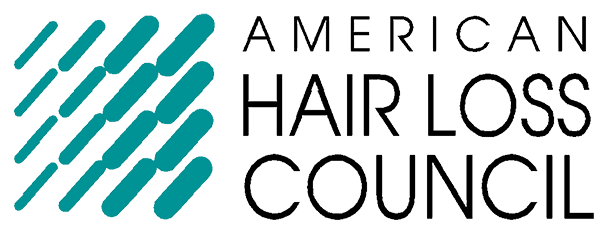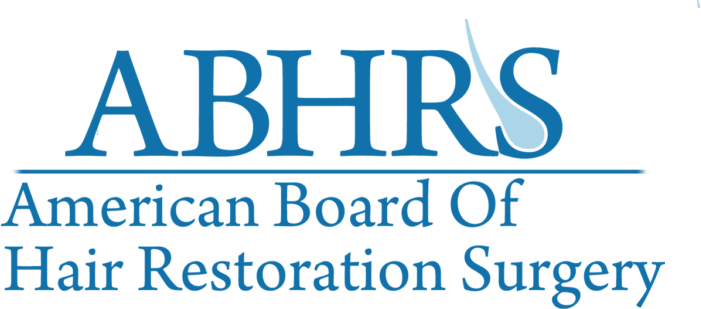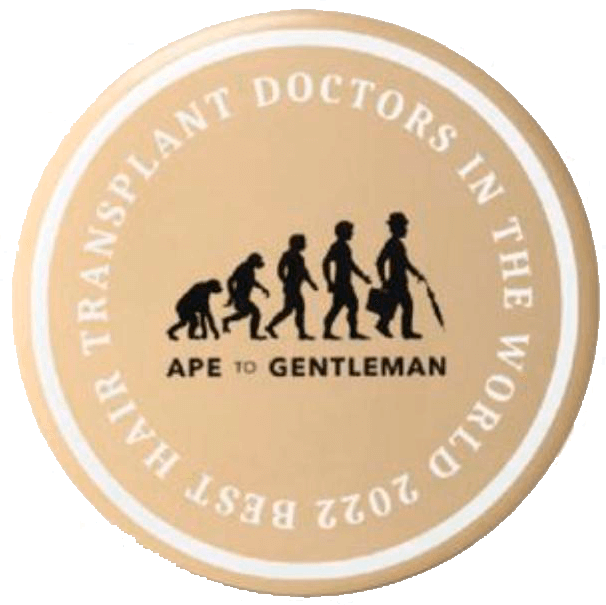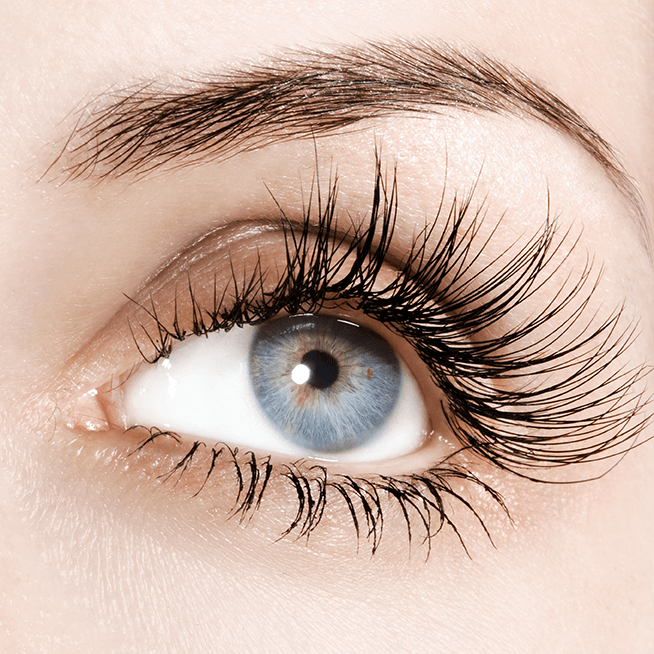Losing Your Hair? Check Your Medicine Cabinet
By Dr. Alan J. Bauman,
Drug-Induced Hair Loss
Hair loss can be quite scary or even devastating for chemotherapy patients. Chemotherapy is designed to save your life by targeting fast growing cancer cells in your body. Unfortunately, chemotherapy drugs don’t distinguish between cancer cells and other rapidly growing cells in your body such as those found in hair follicles. While every cancer drug is different and has different effects on different people, chemotherapy drugs may cause significant hair loss on your scalp, eyebrows, eyelashes as well as the rest of your body. Most chemotherapy causes temporary hair loss, but some chemotherapy medications are known to cause more hair loss more quickly and can also have a high likelihood of causing permanent damage to your hair follicles. Cold cap therapy or scalp cooling systems can help decrease hair fall from chemotherapy but not all oncologists are “on board” with the treatment.
Most chemo patients are focused on the treatment of their cancer—and rightly so. However, many want to continue to live a ‘normal’ life and not ‘give a face to the disease’—meaning, they want to maintain a healthy appearance to their coworkers, family, friends or others, and not necessarily discuss their health situation. Your health is your business, so you should have the option of discussing it (or not) with whom you choose. Today’s modern hair restoration and hair replacement options like “CNC” 3D-printed cranial prosthetics are significantly different than the medical wigs of the past. Many cranial prosthetics can be totally or partially covered by health insurance.
Treatment Options
Instead of your general dermatologist, it is always recommended to seek the advice and the evaluation of a qualified, experienced and ABHRS-certified hair restoration physician who can work with your other health care providers in order to help you diagnose and track your hair loss condition. Good communication with the doctor who prescribed the medication is also imperative to find out if the dosage can be reduced or stopped or if an alternative medication with fewer hair loss side effects could be substituted. When hair loss is due to a medication you are taking, it is likely that hair growth will return to normal once the medication is discontinued. Even if the medications cannot be discontinued or reduced, treatments can still be very effective. Scientific HairCheck measurements can accurately track changes in hair growth in order to determine whether hair loss is stable, getting worse or improving–well before these changes are noticeable to the naked eye. Treatments such as prescription Formula 82M compounded minoxidil, non-chemical PRP Platelet Rich Plasma, targeted nutraceuticals, and non-chemical no-side-effect low level laser therapy for hair regrowth are often used to help rejuvenate hair that has thinned out due to medications.
How You Can Stimulate Healthy Hair Growth
Nutritional hair supplements like Viviscal Pro and “SuperBiotin” can help your hair become shinier, fuller and stronger, in addition to powerful nutraceutical-combos like Nutrafol which supports hair follicle function.
Low-level laser therapy is a non-chemical side effect-free option for hair regrowth by increasing energy production in the skin and hair follicle cells.
PRP Platelet Rich Plasma uses your own blood platelets to stimulate hair growth.
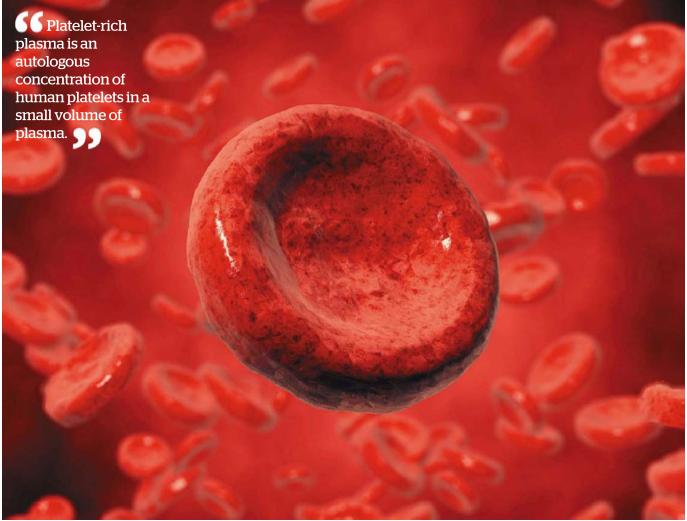
Some of the best food choices for healthy hair include salmon, which is loaded with omega-3 fatty acid, dark green vegetables for vitamins A and C, and Nuts, which are a terrific source of zinc, which can prevent hair shedding.
New “scalp makeovers” are available to treat various hair and scalp problems, including thinning. Treatments range from sebum-regulating topical serums to scalp steaming and massage, moisturizing lotions and hair boosting dermal patches.
If you or someone you know has hair loss, hair thinning, baldness, or eyebrow / eyelash concerns, click to start either a long-distance virtual consultation OR an in-person, in-office consultation with Dr. Bauman. You can also Ask Dr. Bauman a Question or simply call Bauman Medical Group at +1-




 VIDEO: The Reasons Testosterone Therapy Can Wreck Your Hair
VIDEO: The Reasons Testosterone Therapy Can Wreck Your Hair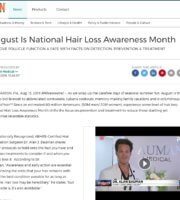 PRESS RELEASE: August is National Hair Loss Awareness Month – Detection Prevention and Treatment
PRESS RELEASE: August is National Hair Loss Awareness Month – Detection Prevention and Treatment ARTICLE: Failing Follicles? Six Ways To Show Your Hair Some TLC
ARTICLE: Failing Follicles? Six Ways To Show Your Hair Some TLC ARTICLE: Food for Hair Growth
ARTICLE: Food for Hair Growth Dr. Alan J. Bauman, M.D.Hair Loss & Hair Transplant ExpertBoca Raton, FL
Dr. Alan J. Bauman, M.D.Hair Loss & Hair Transplant ExpertBoca Raton, FL